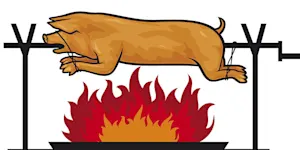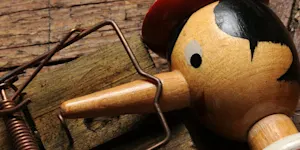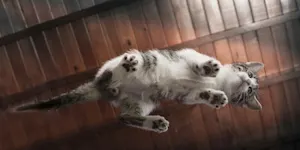What Makes This Word Tick
The word "placate" is all about soothing ruffled feathers and making peace. It's one of those handy little terms often used when tensions are high, whether at a family gathering or in the boardroom. Its mission is to ease and mollify, often with the subtlest of gestures or words.
If Placate Were a Person…
Imagine "Placate" as a gentle mediator in a crisp suit, always ready to step in with a calming drink or a perfectly timed compliment. They have an understated charm and carry themselves with a calm assurance that immediately puts people at ease.
How This Word Has Changed Over Time
Originally derived from Latin, "placate" hasn't strayed far from its roots, which means to soothe or appease. While its role remains relatively unchanged, the scenarios where it applies have expanded, from diplomatic negotiations to everyday quarrels over the remote control.
Old Sayings and Proverbs That Use Placate
Though “placate” itself might not star in many proverbs, its spirit is alive in sayings like “a soft answer turns away wrath” or “catch more flies with honey.” These highlight the age-old wisdom of gentle persuasion over confrontation.
Surprising Facts About Placate
Did you know that "placate" is often used in the context of diplomacy? Crafting treaties and peace deals require a good deal of placation to keep all parties on amicable terms. It’s the unsung hero behind many a hand-shake agreement.
Out and About With This Word
Whether you’re attempting to reconcile a heated discussion at the family dinner table or negotiating a raise, the ability to placate can be a life saver. It’s a word that's quite at home wherever there’s potential for discord.
Pop Culture Moments Where Placate Was Used
While you might not hear "placate" directly, it’s a subplot in plenty of TV dramas. Think of any series with a stubborn boss or tense in-laws—eventually, someone steps in to placate, smoothing things over and saving the day.
The Word in Literature
"Placate" might quietly sit on the sidelines of literature, often integral yet rarely glamorous. Characters with a knack for understanding and defusing situations often have this talent, making them pivotal in stories from Jane Austen to modern novels.
Moments in History with Placate
Consider the calm after the Cuban Missile Crisis—no one explicitly said "placate," but the quiet diplomacy and cool heads certainly reflect its spirit. It's an undercurrent in history, where peace needed gentle coaxing more than a forceful hand.
This Word Around the World
In many cultures, the art of placating takes high regard. For instance, in Japan, where maintaining harmony and saving face—"wa"—is fundamental, placation plays an important role in interactions both big and small.
Where Does It Come From?
"Placate" hails from the Latin word “placare,” which means to calm or appease. Over time, the term has made itself at home in English, carrying with it centuries of soothing influence.
How People Misuse This Word
People sometimes use "placate" interchangeably with "pacify" when they aren't quite the same. Pacifying implies quelling more immediate aggressions, whereas placating is a gentle, strategic easing into peace.
Words It’s Often Confused With
Pacify: Often confused because it also means to calm, but more forcefully.
Appease: Suggests satisfying or calming someone, often by meeting demands.
Mollify: Similar in meaning but implies softening someone's feelings rather than a situation.
Additional Synonyms and Antonyms
Some synonyms for placate include appease, soothe, and calm. On the flip side, antonyms include provoke, enrage, and agitate. These help highlight its peace-loving nature!
Want to Try It Out in a Sentence?
"Janet tried to placate her angry neighbor with a freshly baked pie, hoping the sweet gesture would smooth out their earlier disagreement over the fence."
















